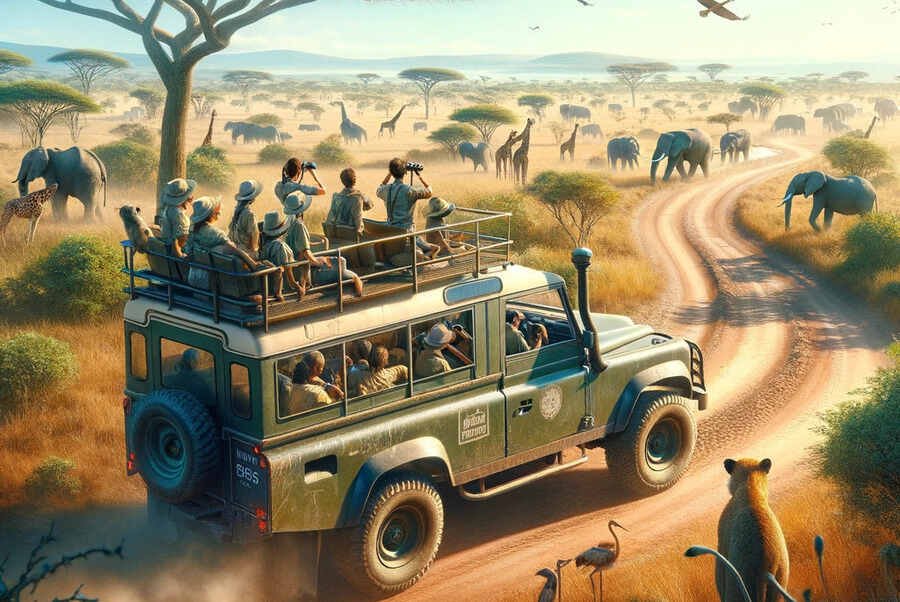The safari tourism market is set to witness significant growth in the coming years, with leading players such as TUI, AndBeyond, and Scott Dunn driving this expansion. According to a recent market research report, the market is expected to grow at a CAGR of X% from 2024 to 2030.
Safari tourism has always been a popular choice for adventure seekers and nature enthusiasts, offering them an opportunity to witness the beauty of wildlife in their natural habitats. The experience of witnessing majestic animals up close and personal, coupled with the thrill of exploring vast landscapes, is a mesmerizing and unforgettable experience for many.
TUI, a prominent player in the travel and tourism industry, has recognized the immense potential of the safari tourism market. The company has been actively investing in developing safari tour packages and expanding its presence in key safari destinations across Africa. TUI’s strong brand reputation and extensive network make it well-positioned to capitalize on the growing demand for safari experiences.
AndBeyond, a luxury travel company specializing in tailor-made safari experiences, is also expected to play a significant role in driving the growth of the safari tourism market. The company is renowned for its top-notch services, exclusive lodges, and commitment to conservation. AndBeyond’s focus on sustainable tourism practices has garnered them a loyal customer base and positioned them as a key player in the luxury safari segment.
Scott Dunn, a luxury tour operator, is another major player in the safari tourism market. The company offers a range of high-end safari experiences, including private game drives, luxury accommodation, and personalized itineraries. With its focus on delivering exceptional customer experiences, Scott Dunn has been able to attract affluent travelers who are willing to spend more for exclusive and unforgettable safari adventures.
Several factors are driving the growth of the safari tourism market. Firstly, there is a growing interest in eco-tourism and sustainable travel, with travelers seeking experiences that have a minimal impact on the environment. Safaris, when conducted responsibly, offer a unique opportunity to learn about wildlife conservation and support local communities.
Secondly, the rise of social media has played a significant role in popularizing safari tourism. Through platforms like Instagram, travelers can share their breathtaking wildlife encounters, sparking interest and curiosity in others. This, in turn, has led to an increase in demand for safari experiences.
Lastly, the COVID-19 pandemic has also contributed to the growth of the safari tourism market. As international travel restrictions ease, there is a pent-up demand for travel experiences, and safaris provide an ideal opportunity for travelers to reconnect with nature and embark on memorable adventures.
To tap into the growing market, industry players are focusing on innovation and diversification. They are introducing new safari destinations, developing unique experiences, and embracing technology to enhance the overall customer experience. For instance, virtual reality safaris, where travelers can explore wildlife reserves from the comfort of their homes, have gained popularity during the pandemic and are likely to continue attracting interest even after travel restrictions are lifted.
In conclusion, the safari tourism market is poised for significant growth in the coming years. Leading players such as TUI, AndBeyond, and Scott Dunn are well-positioned to capitalize on this growth, thanks to their strong brand reputation, focus on sustainability, and commitment to delivering exceptional customer experiences. As travelers seek out unique and immersive travel experiences, the allure of a safari adventure will continue to attract a growing number of tourists, driving the expansion of the safari tourism market.





